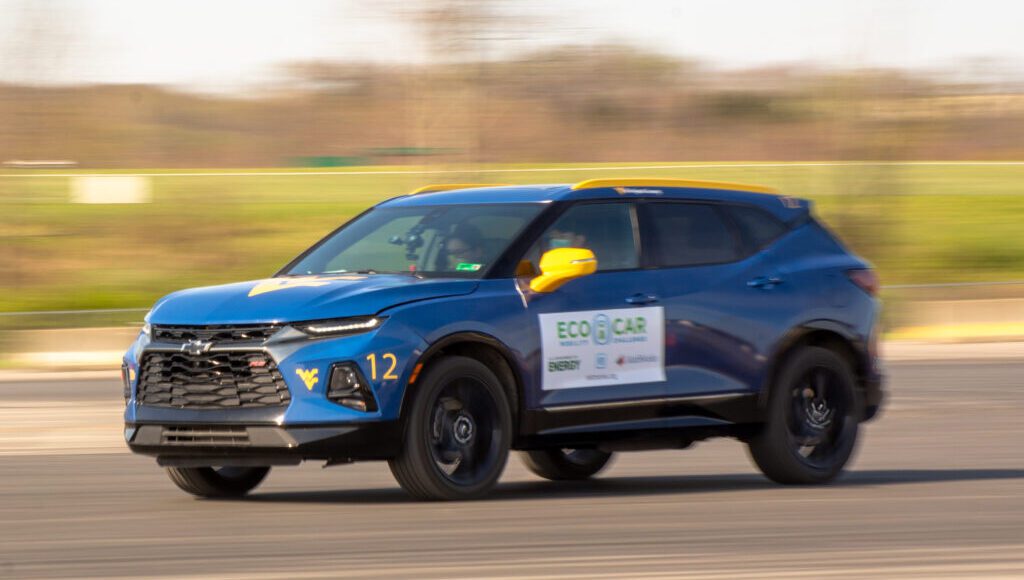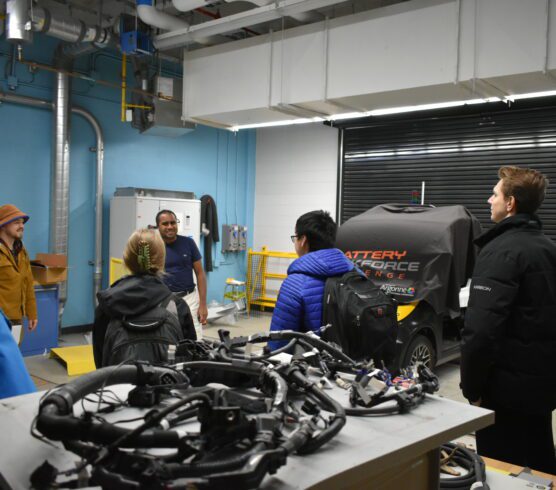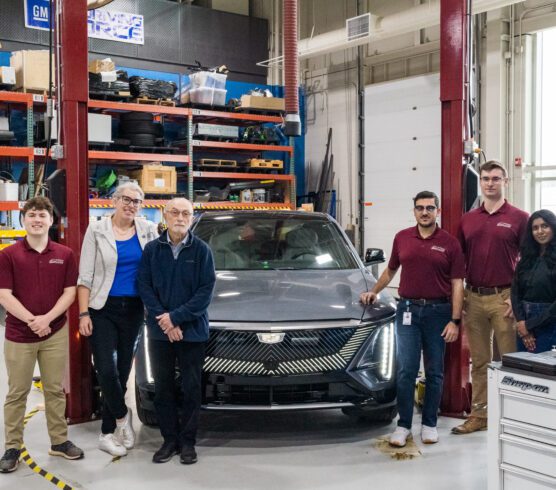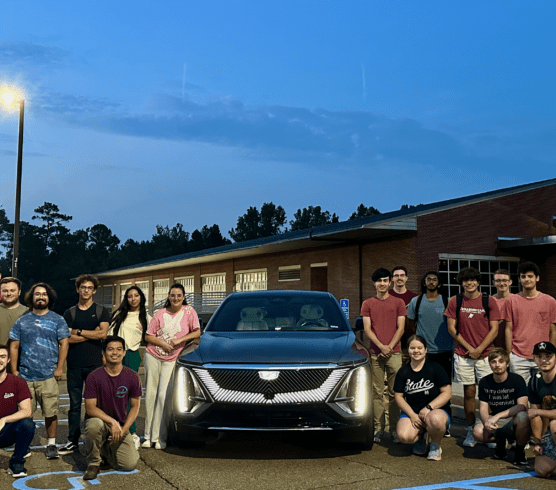To be the best, one must be willing to put in the hard work to succeed. Students participating in Advanced Vehicle Technology Competitions (AVTCs) are no strangers to the hard work and dedication necessary to win. The EcoCAR Mobility Challenge (EMC) is no different from previous AVTCs. 11 universities across North America are tirelessly working on their 2019 Chevy Blazer in preparation for Year 3 Competition this May.
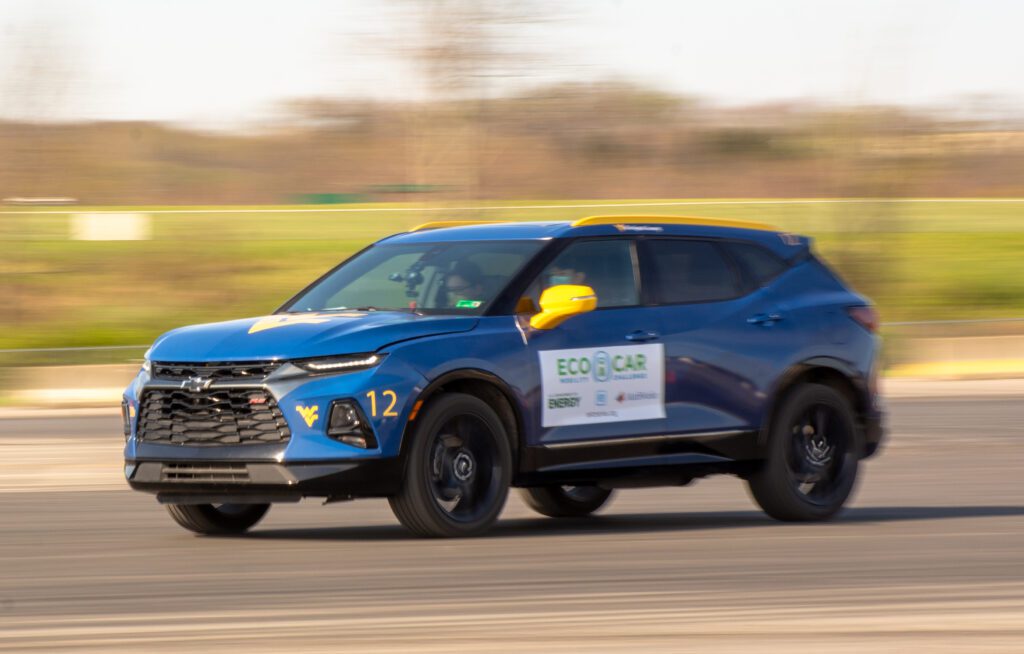
At West Virginia University (WVU), the EcoCAR team prides itself on the work they do throughout the year to ensure they are in the best position possible to excel above the competition.
“We all joined EcoCAR knowing that the competition was deliverable driven and that we will do what we need to do to submit deliverables on time,” said Jared Diethorn, Propulsion Control and Modeling (PCM) co-lead. “What is so great about this is that our team puts our best foot forward to deliver quality work time and time again.”
One of the requirements teams must meet for Year 3 is to have full control of their hybrid system functionality, which is something that the WVU EcoCAR team was struggling with for several months.
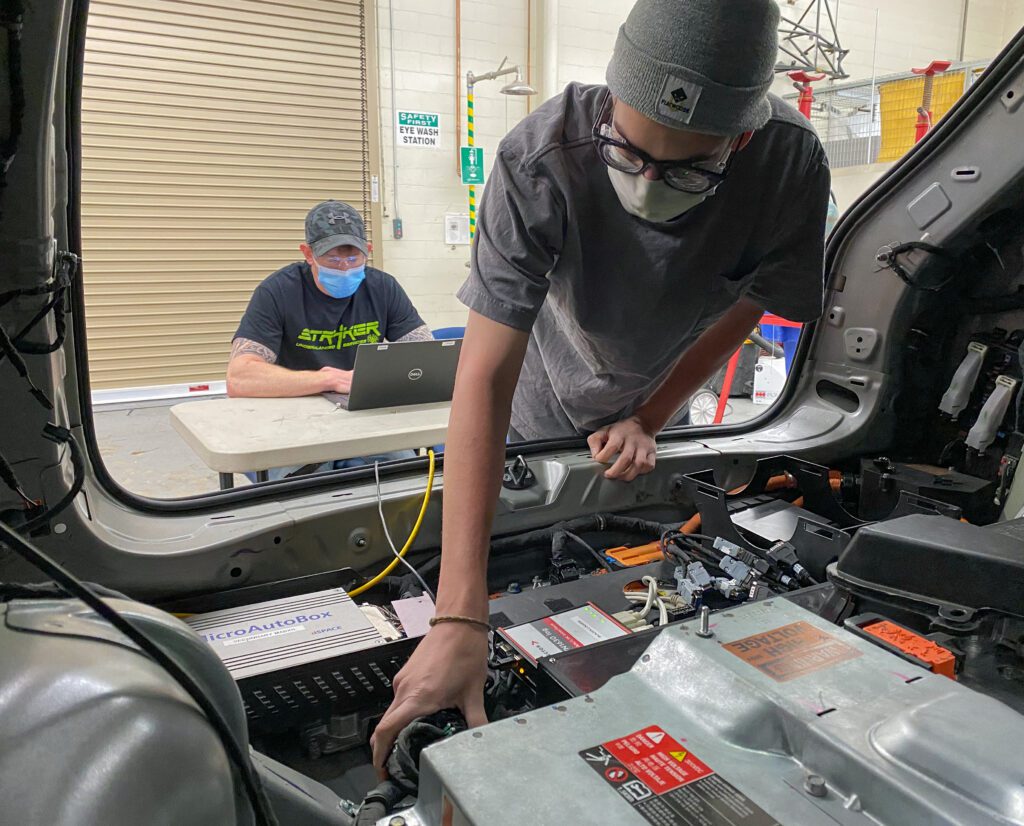

“Essentially, we couldn’t send commands to the inverter to run our hybrid system,” said Aaron Mull, Engineering Manager. “We knew that we needed this running for May, and were prepared to put in the work to ensure we met not only the competition requirements but our team goals.”
Over the course of a 48-hour-period, team members worked in the labs to work on the high-voltage inverter. Once communication was fixed, the PCM team could send torque control commands to the rear axle and use hybrid functionality. The work that was done during that time proved to be invaluable to the team.
“As soon as we got functionality, we were able to begin running tests that we’ve been waiting to do for months,” said Diethorn. “This was a huge success for our team.”
Working as hard as the WVU EcoCAR team does has its benefits. 4 of the 11 teams in the competition use the MAGNA motor and inverter system, WVU being one of them. Because of the work the team put in, they were the first MAGNA school to achieve hybrid functionality. Even though WVU EcoCAR has made significant progress in Year 3, it doesn’t mean that other teams haven’t done the same.
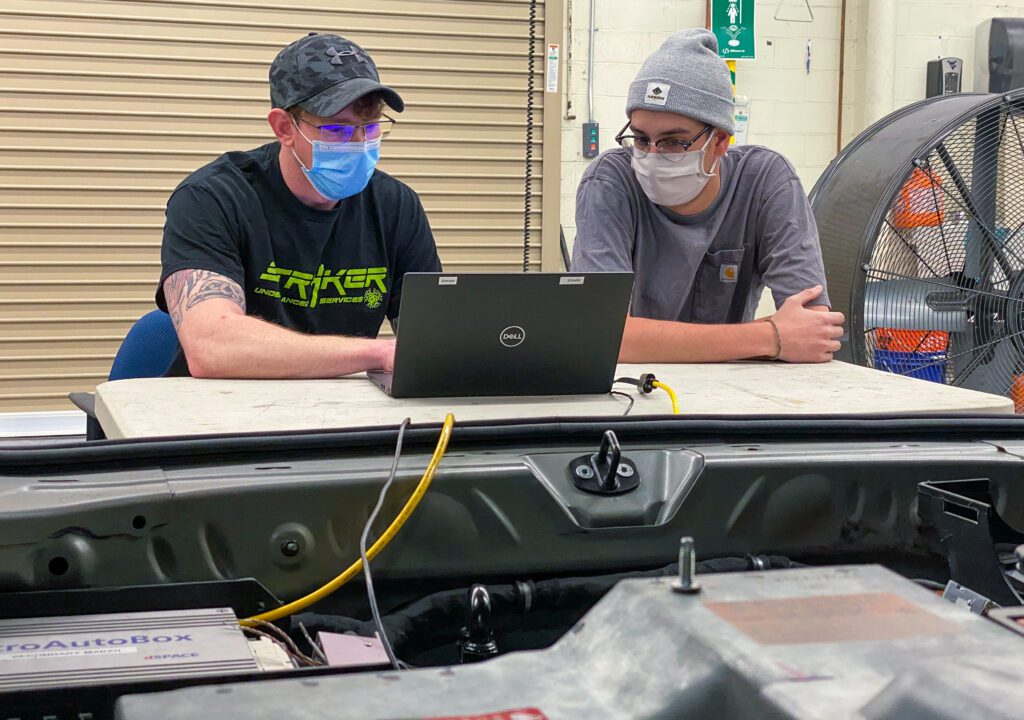

“The competition is fierce and each team works just as hard if not harder than us,” said Mull. “However, we as a team stand out because of our work ethic as crazy Mountaineers and we also do a good job of using methods that are consistent with industry vehicle development processes.”
As Year 3 draws to a close, there is one thing that is certain about Year 4 of EMC. There will be many days of teams working diligently in their garages making progress on their Blazers. That is what it takes to be successful in AVTCs.
